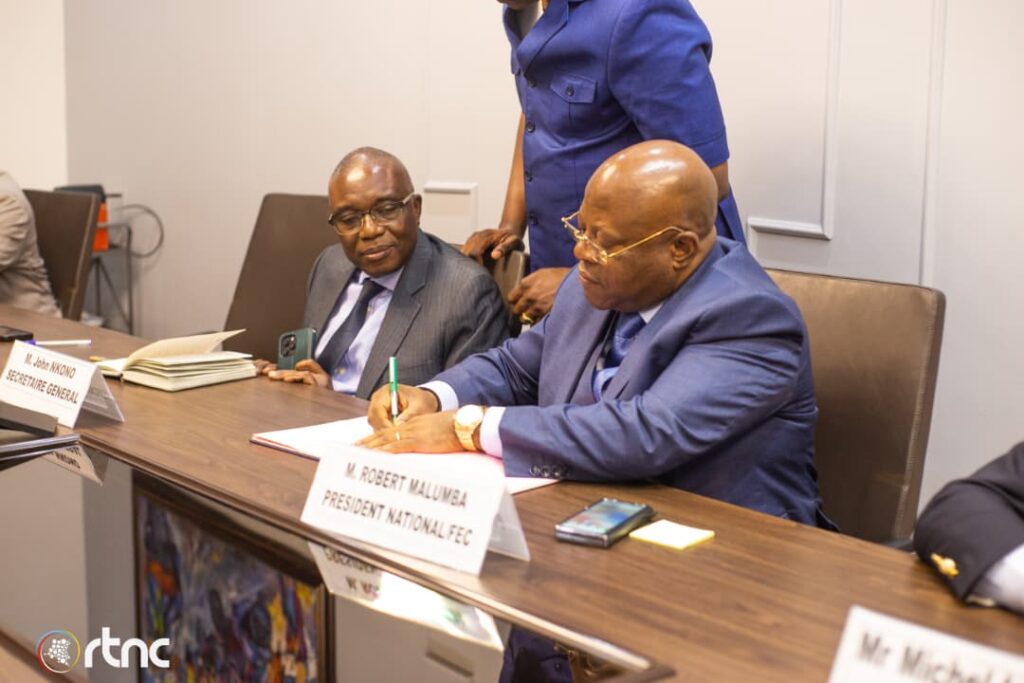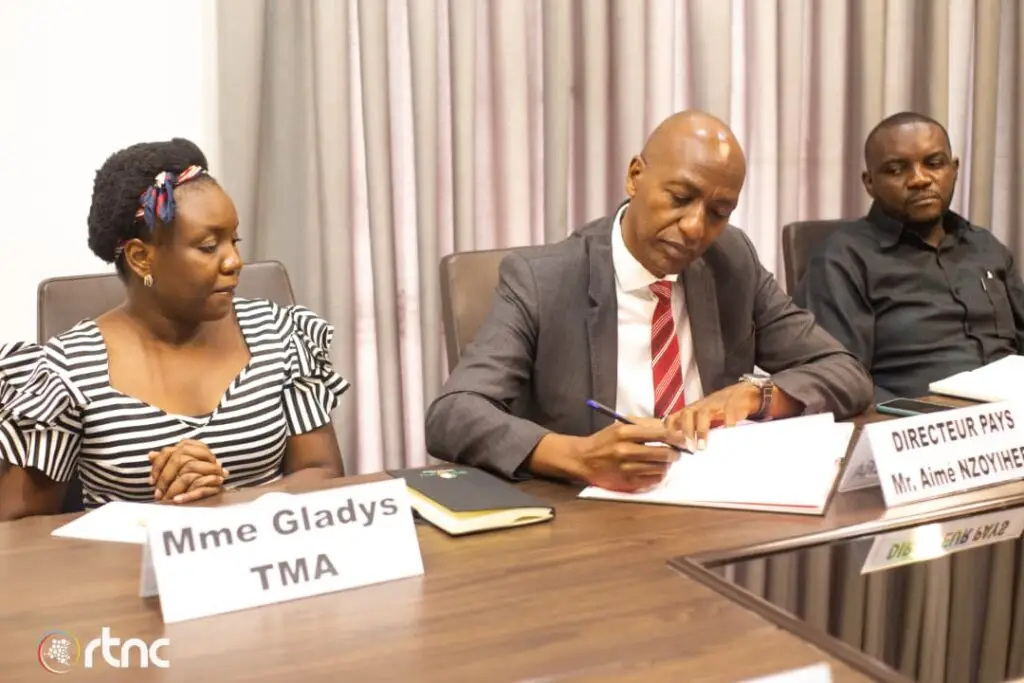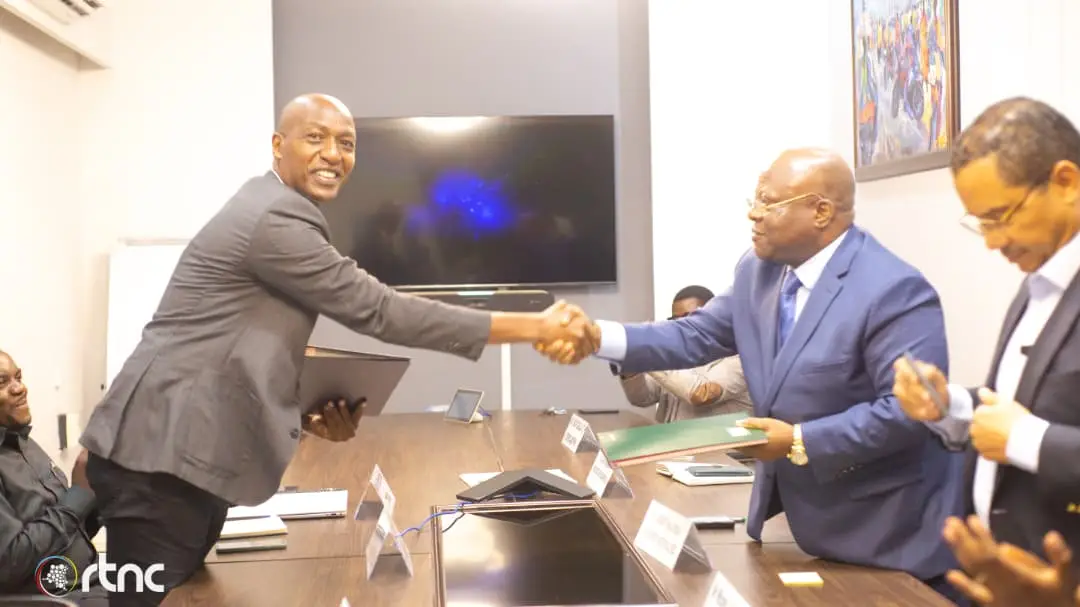Kinshasa, DRC, October 15, 2025: The Federation of Enterprises of Congo (FEC) and TradeMark Africa (TMA) have signed a Partner Support Agreement (PSA) to expand TMA’s digital trade information platform and strengthen the Logistics Platform Dialogue. The initiatives will provide women and young traders access to real-time data, create a structured framework for dialogue between the business community and public authorities, and improve predictability along one of Central Africa’s busiest trade corridors.
Funded by the UK International Development, the agreement runs until March 2026 and builds on lessons from Burundi, Rwanda, Tanzania, and Uganda, where TMA’s digital trade information platform delivers measurable results. By May 2025, the platform connects over 95,000 traders-90% of them women to wider markets, enabling them to record a 70% annual increase in sales and demonstrating a clear link between digitisation and inclusion (Making Trade Work for Women in East Africa, Evaluation Report 2024).
Extending this model to Haut-Katanga will enable small-scale traders to make better business decisions, expand networks, and trade more confidently across the DRC–Zambia border. The Kasumbalesa post, one of Africa’s busiest crossings, handles more than 1,000 trucks a day. Yet inefficiencies in customs procedures, unpredictable costs, and limited access to trade information continue to raise the cost of doing business, particularly for women and young entrepreneurs. The new partnership addresses these challenges by improving data flow, coordination, and communication to lower trading costs, strengthen trust in formal systems, and create new opportunities under the African Continental Free Trade Area (AfCFTA).
Through the Logistics Platform Dialogue, traders and business representatives will be able to engage directly with border authorities and public agencies to identify practical solutions to recurring challenges. Supported by data from the digital platform, the dialogue seeks to make cross-border trade more transparent, inclusive, and responsive to the needs of the private sector, while building projects that are sustainable and efficient.
Speaking at the signing ceremony, Robert Malumba, National President of FEC, stated: “For Congolese businesses, efficient and transparent border systems are essential to growth. This partnership marks a step towards modernising how trade is managed and ensuring that small traders can compete and thrive within formal markets. The digital platform and the Logistics Platform Dialogue will provide a space for the private sector and government to exchange information, address practical bottlenecks, and create conditions for Congolese enterprises to benefit fully from the AfCFTA.”

Aimé Nzoyihera, TMA Country Director for DRC, added: “Digital systems are reshaping how trade works in Africa. This partnership is part of our broader effort to make trade more predictable and inclusive by using data to solve real challenges faced by traders. The digital platform and Logistics Platform Dialogue will help simplify processes, reduce uncertainty, and give traders-especially women and youth-reliable information to make better business decisions. When the public and private sectors share information and act on it, trade becomes more efficient, markets grow, and communities benefit.”

Women and youth drive small-scale cross-border trade in the DRC, forming the backbone of local economies and regional markets. This project places them at the centre of digital transformation by ensuring that at least 50% of users of the Haut-Katanga platform are women, supporting their transition into formal trade and opening pathways to growth. Young entrepreneurs will gain better access to markets and targeted training, equipping them to build sustainable enterprises and contribute to a more inclusive trading system.


